Ins and outs
As a flotilla of pro-Brexit fishing vessels arrives in London, Emily Clark reports on why so many fishermen want to leave the EU – and why conservationists think we should stay in.

Two fishermen haul in steel ropes reaching a quarter of a mile down to the seabed. They are fishing for lemon sole, but at least 10 species of fish tumble out of the net, along with a few crabs, plastic bags and bottles. There’s even a fat conger eel, as long as a person, which escapes and chomps around our feet.
Richard Fowler and his “skivvy” Keith Keeble (pictured below) are aboard the Gerry Ann, a 45-foot trawler seven miles off the coast of Brixham, England’s number one fishing port. Lemon sole is so prolific in the English Channel that the EU imposes no restrictions on it, so in theory, Richard can catch as much he likes. But it’s not as straightforward as that, he explains.
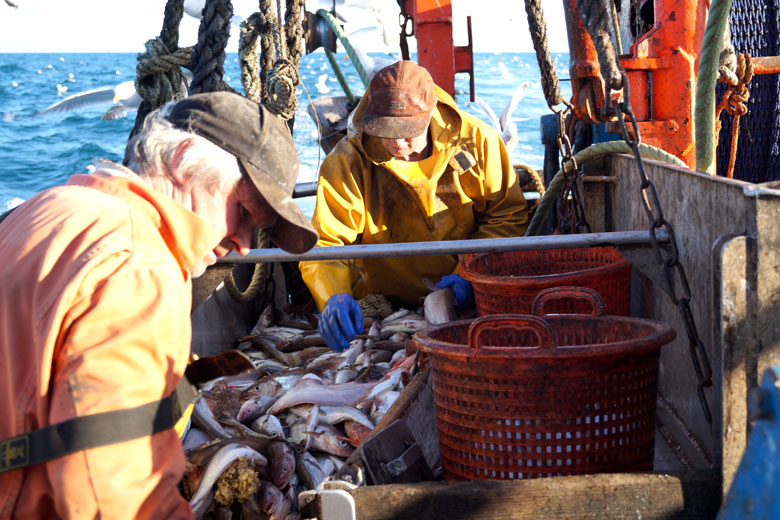
The trouble is those other species that he hasn’t targeted, but can’t help but catch along with the lemon sole. Under the relatively new landing obligation – aka the discards ban – he can’t throw away any fish at sea. Like many small-scale fishermen around here, he has very little quota for cod or haddock, even though they are now prolific in these waters. Once that quota is used up, he has to land any that he catches, even though he can’t sell them. This is the problem with “choke” stocks, which we’ve written about before: these threaten to close whole mixed fishing areas when the quota for one species is used up, even though there may be plenty of quota left for others.
Richard isn’t the only fisherman struggling with the regulation. Some fishermen have turned to time-intensive scalloping, crabbing or catching lobsters, which have no quota restrictions. Steve Parker, who usually trawls for fish, is smartening up his lobster pots for the first time in 30 years. On the day I meet him, he is knotting holes into 500 cages to allow baby lobsters to escape. “I catch my haddock quota in one day,” he says. “What am I going to do for the rest of the week? Tie up?”
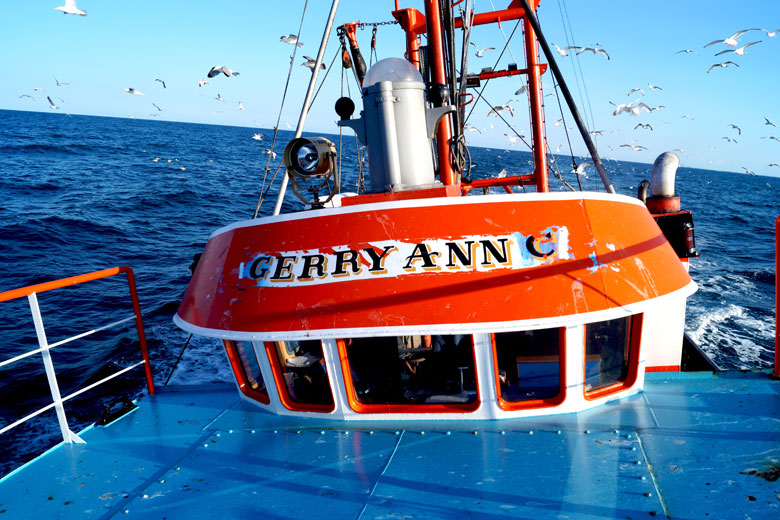
The landing obligation is just one of the rules that has turned Brixham fishermen fiercely against the EU, tired of “bonkers” regulations which they say don’t make sense for their style of fishing. Bureaucracy keeps surfacing in conversations with Brixham fishermen. It’s not just recent history, either: resentment against the EU goes back a long way. On the quayside at Brixham harbour, Bill Wakeham says: “I was a fisherman for 45 years. At the end, it became so much paperwork, rules and regulations, you were spending more time sat down doing paperwork than you were fishing.”
There is also a strong sense of unfairness here. When the UK joined the European Economic Community in 1973, we agreed to share the waters we were fishing with our neighbours. Over the years, quotas have been cut and fleets reduced, in an effort to allow stocks to recover from overfishing. But fishermen don’t believe the rules are applied, or enforced, fairly.
Bill, who has been retired for 10 years, is full of anecdotes that convey a deep mistrust of foreign boats. “I always remember being in France 20 years ago, and seeing them landing herrings despite the herring ban,” he says. “One boat in Brixham had to go out and dump 20 tons of herring or he’d be prosecuted for landing fish that the quota had run out on.
“The same week I was in Cherbourg market, and saw herring being landed there from a French boat. When I said to the fishery bloke about it, he says, ‘no, they’re not herring, they’re French pilchards’. That is the problem: this country sticks to the rules, but over on the continent they don’t.”
Steve blames the EU for the slide in jobs over the years: there were 21,443 fishermen in the UK in 1970 but only 11,845 in 2014, according to the Marine Management Organisation. “The EU hasn’t done us any favours – while they’ve paid the Spanish to rebuild their fleet,” he says. Another problem with the EU, he adds, is that rules are made in a big block centrally, with little or no account for regional variations, which can be enormous. “And you’ve got people in the EU deciding how fisheries should be managed who haven’t even got any sea, which is bonkers,” says Steve.
The quota issue comes up time and again. “The under-10m boats have got hardly any haddock quota and the producer organisations haven’t got much either. But the French have got a lot, so they can catch their haddock here, but we can’t,” says Steve. The quota allocated to him every month is two tonnes, or two days of fishing, which he calls “a pittance”. His monthly earnings of £4,000 are “not enough”, when “food, fuel, insurance, harbour dues, running costs” are factored in.
If the UK government was in charge, English fishermen would have more clout, Steve says. “At least we could have a say, couldn’t we? We can vote them out – we can’t vote the Eurocrats out.” If we leave, George Eustice, pro-Brexit former fisheries minister, says negotiations with other countries will take place, to get Britain a bigger slice of the pie. We will “still target sustainable fishing limits”, he says, but will fight for more fish. “Free from the hindrance of the EU, the UK would be able to assert itself in the North Sea to deliver fair and sustainable fishing,” he argues, also vying for a greater share of cod and plaice in the English Channel.
Not everyone is sure that voting out will help sustainability, however. Maria Jose Cornax, fisheries campaign director of environmental charity Oceana, believes that EU regulations, though not perfect, have helped the healthy management of stocks. “Without them, I have a strong feeling that our stocks would be in much worse shape than they are today, even collapsed,” she says.
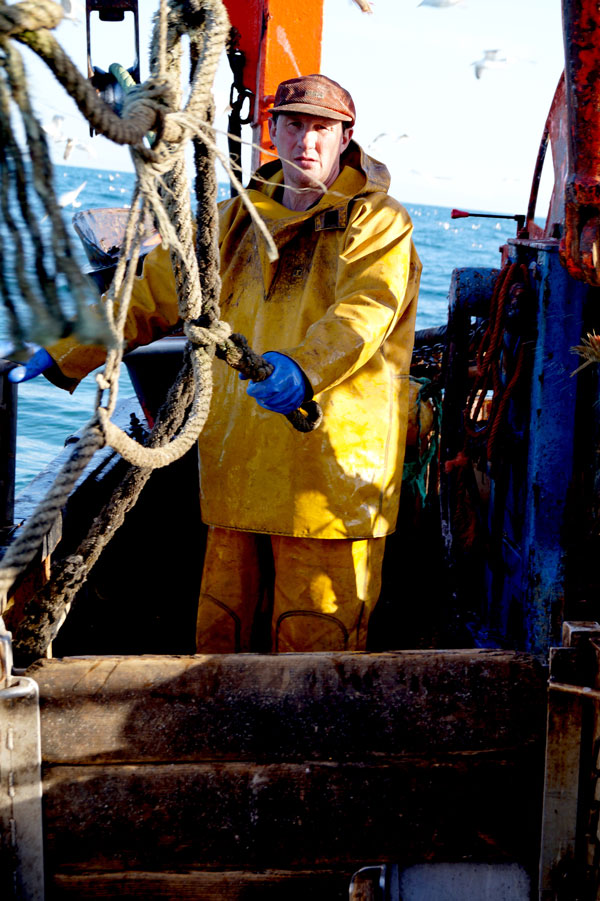
And those regulations remain just as important today, she continues. “The EU’s new Common Fisheries Policy (CFP) commits us to managing our fishing stocks sustainably by 2020. That’s a very clear deadline. It’s something that I strongly doubt that any member state, not only the UK, would been willing to do individually.” She believes that if the UK were to vote out and abandon the CFP, overfishing would increase. She says there would be “bread for today and famine for tomorrow”.
Will McCallum, head of oceans at Greenpeace, has a similar view. “When we look at history, we see clear examples of massive overfishing and the environment being the least of anyone’s concerns,” he says. “Fish stocks are in a much better state now than they were generally before the CFP. We think staying in is a good thing for the environment.”
Griffin Carpenter, an economist at environmental think tank New Economics Foundation (NEF), also believes that post-Brexit politics will be bad for stocks. “I think what’s the most likely case in the Brexit scenario is that the UK will try to renegotiate more quota. But other EU member states that fish the same waters, such as France, Spain and Ireland, won’t accept less quota for themselves. So quotas will probably be increased above what’s sustainable to make sure that the UK is happy.”
Will McCallum also argues that the plight of under-10m fishermen like Steve is the result of UK, not EU legislation. “About 95% of the fishing quota is awarded to the larger end of the fleet, most notably domestic and foreign controlled industrial fishing businesses,” said a Greenpeace article last year. “Meanwhile, local, sustainable fishermen, which are the heart of many coastal economies, get just 4%. Many are facing bankruptcy and food banks. The new CFP obliges European governments to allocate fishing opportunities – such as fishing quota – to their fleets according to environmental and social, as well as economic criteria.”
Says Will: “The livelihoods of thousands of sustainable fishermen are being put at risk not by EU laws but by the grossly unfair division of fishing rights the UK government has overseen. The reformed CFP policy gives ministers the power to fix this broken system yet they have so far preferred to defend the status quo.”
Back on the Gerry Ann, Richard Fowler, like every other fisherman I’ve spoken to in Brixham, says he will be voting out of the EU on 23 June. “On the whole, it’s a good life,” he says. “But like everyone else, you always want more.” Whether or not he will get more from leaving the EU is as contentious as the rest of the Brexit debate. But for Richard today, the baffling rules that govern his livelihood are as inexplicable as the strangest thing he has ever found in his net – a vacuum-packed kipper, complete with a knob of butter.
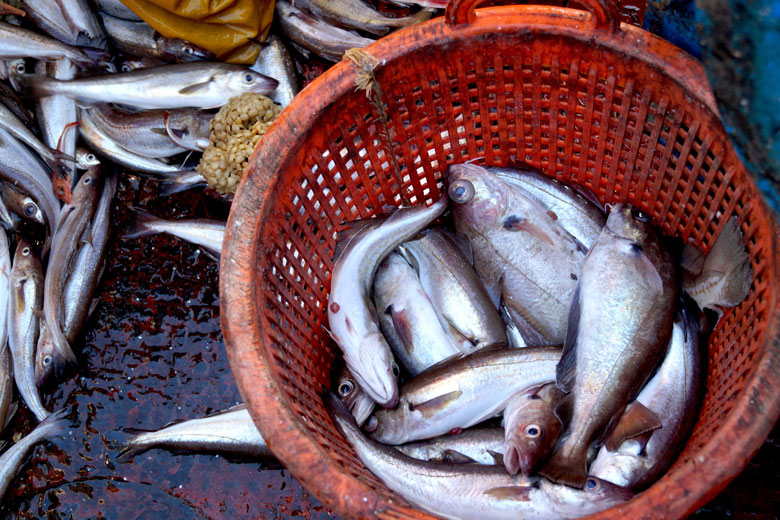
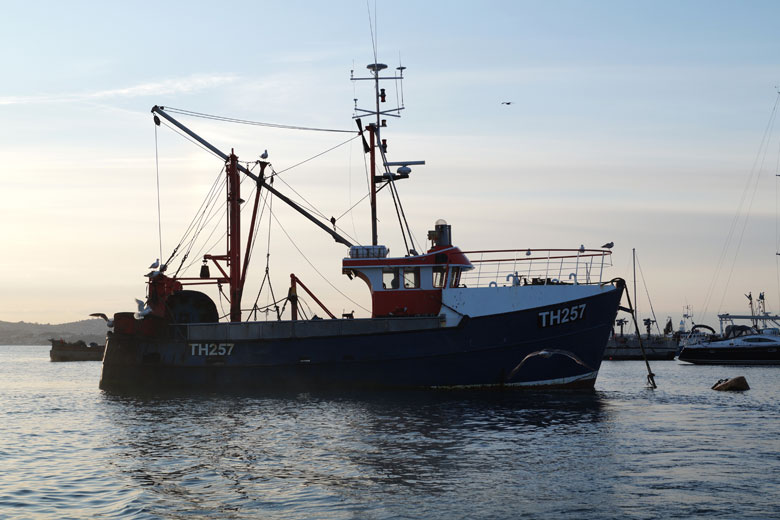
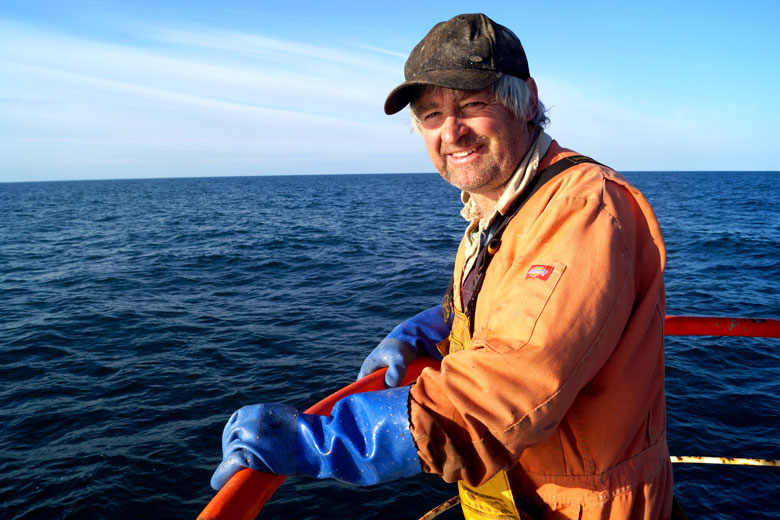

Emily Clark is a freelance food and environment writer who has written for BBC Countryfile Magazine and The Caterer. She recently completed an MA in magazine journalism at City University, London. All of the pictures in this post were taken by her. Follow her on Twitter @emilyclark1702





